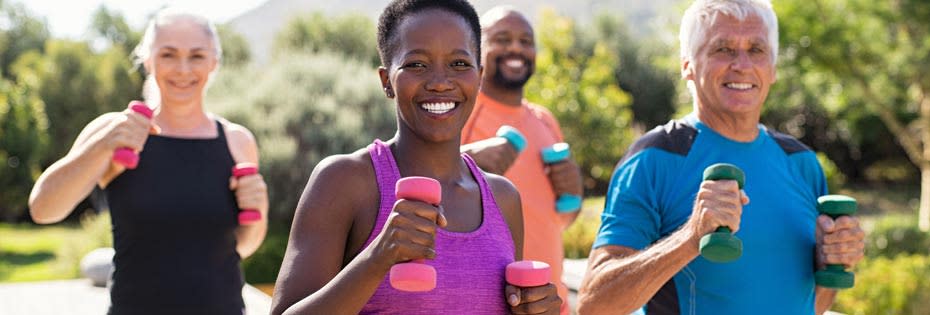Why is muscle health important as we age?
Author Max Gowland, PhD
Last updated 1st December 2020

Why is muscle health important as we age?
As we get older, we tend to start losing muscle mass. In fact after the age of around 45, we lose around 1% muscle mass each year, which means that by the time we’re 65, we may have lost a quarter of our muscle mass or even more!
This is an alarming fact to most people. In fact there is a medical term for this which is sarcopenia.
Of course loss of muscle mass leads to a reduction of strength and even the onset of frailty later on. Frailty can in turn lead to a higher incidence of falls and fractures, the hip fracture being the most common. But we can fight back against this quite easily with a two pronged approach.
Protein and muscles
The first is to eat plenty of protein. The recommended daily intake for protein is around 50g a day for a man and around 45g for a woman1 according to official government advice. Most of us get this if our diet is good, but it is now well proven that a higher protein diet is necessary to combat this muscle wasting and the suggested intake of protein is nearer 90g a day.
This new recommendation has been the subject of a recent major international conference called the ProtAge study2, in which top international scientists collaborated together in coming to an overall conclusion about ageing and protein intake.
Stay active
The second way of fighting back against muscle wastage is to remain active. The ‘use it or lose it’ saying is quite true when it comes to ageing and muscle mass. Furthermore, if this exercise can be weight bearing then this will be even better as this will help strengthen legs, as well as helping posture and balance.
One of the best forms of exercise for muscles is resistance exercise, in which weights or bodyweight can be used to stress and work the muscles. The muscles then want to recover afterwards and this is when they use protein from the diet or supplements to rebuild themselves, leading to enhanced strength over time.
The combination of both resistance exercise and a high protein intake is a proven combination to help prevent sarcopenia or muscle loss.
References
1. Public Health England. Government recommendations for energy and nutrients for males and females aged 1-18 years and 19+ years..Government Dietary Recommendations Monograph. 2016.
2. Bauer J, Biolo G et al Evidence-based recommendations for optimal dietary protein intake in older people: a position paper from the PROT-AGE Study Group. J Am Med Dir Assoc. 2013 Aug;14(8):542-59. doi: 10.1016/j.jamda.2013.05.021. Epub 2013 Jul 16. PMID: 23867520.
